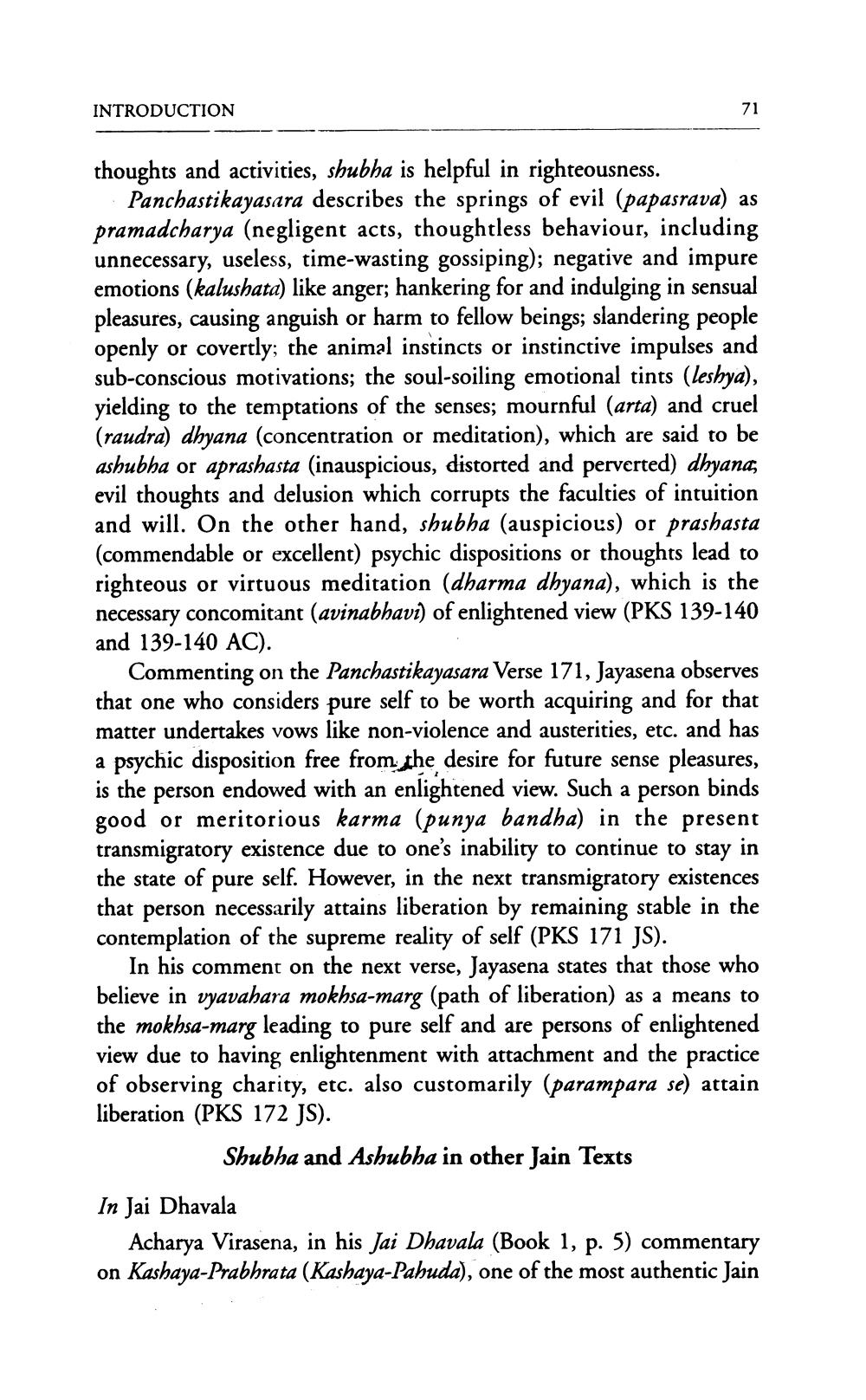________________
INTRODUCTION
thoughts and activities, shubha is helpful in righteousness.
Panchastikayasara describes the springs of evil (papasrava) as pramadcharya (negligent acts, thoughtless behaviour, including unnecessary, useless, time-wasting gossiping); negative and impure emotions (kalushata) like anger; hankering for and indulging in sensual pleasures, causing anguish or harm to fellow beings; slandering people openly or covertly; the animal instincts or instinctive impulses and sub-conscious motivations; the soul-soiling emotional tints (leshya), yielding to the temptations of the senses; mournful (arta) and cruel (raudra) dhyana (concentration or meditation), which are said to be ashubha or aprashasta (inauspicious, distorted and perverted) dhyana, evil thoughts and delusion which corrupts the faculties of intuition and will. On the other hand, shubha (auspicious) or prashasta (commendable or excellent) psychic dispositions or thoughts lead to righteous or virtuous meditation (dharma dhyana), which is the necessary concomitant (avinabhavi) of enlightened view (PKS 139-140 and 139-140 AC).
Commenting on the Panchastikayasara Verse 171, Jayasena observes that one who considers pure self to be worth acquiring and for that matter undertakes vows like non-violence and austerities, etc. and has a psychic disposition free from the desire for future sense pleasures, is the person endowed with an enlightened view. Such a person binds good or meritorious karma (punya bandha) in the present transmigratory existence due to one's inability to continue to stay in the state of pure self. However, in the next transmigratory existences that person necessarily attains liberation by remaining stable in the contemplation of the supreme reality of self (PKS 171 JS).
In his comment on the next verse, Jayasena states that those who believe in vyavahara mokhsa-marg (path of liberation) as a means to the mokhsa-marg leading to pure self and are persons of enlightened view due to having enlightenment with attachment and the practice of observing charity, etc. also customarily (parampara se) attain liberation (PKS 172 JS).
Shubha and Ashubha in other Jain Texts In Jai Dhavala
Acharya Virasena, in his Jai Dhavala (Book 1, p. 5) commentary on Kashaya-Prabhrata (Kashaya-Pahuda), one of the most authentic Jain




